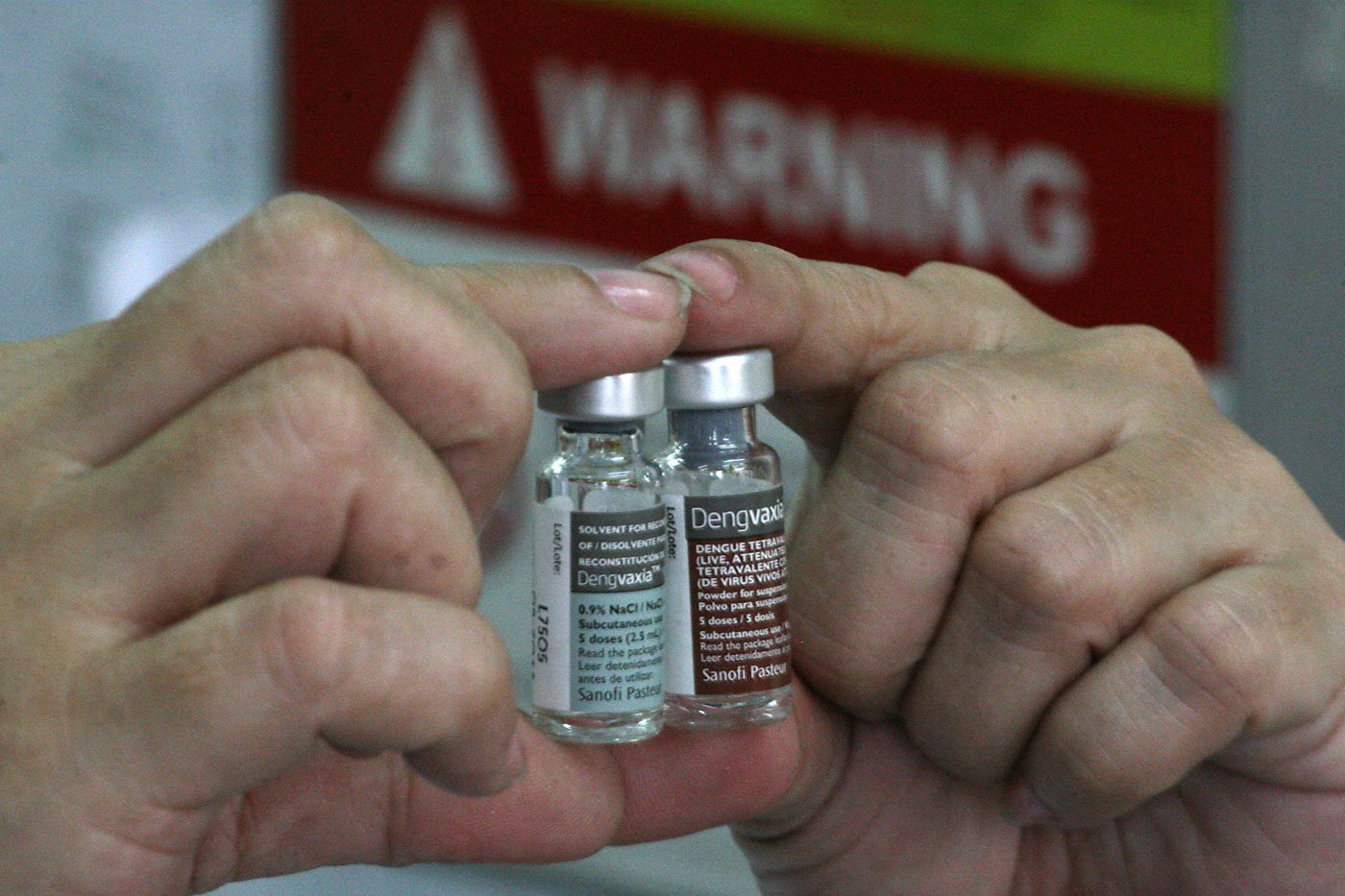SUMMARY
This is AI generated summarization, which may have errors. For context, always refer to the full article.

MANILA, Philippines (UPDATED) – Troubles continue for French pharmaceutical giant Sanofi Pasteur as the Philippines’ Food and Drug Administration (FDA) suspended its sale of the controversial Dengvaxia dengue vaccine for a year.
The FDA, a regulatory agency under the Department of Health (DOH), also imposed a P100,000-administrative fine on Sanofi for failing to comply with post-marketing authorization requirements for the vaccine.
Health Secretary Francisco Duque III confirmed this to Rappler on Thursday, January 4. FDA Director-General Nel Charade Puno signed the document on December 29, 2017.
“You were asking me about the suspension and fine on Sanofi. That’s the way it is. I think it’s a pretty accurate report,” Duque said in a phone call to Rappler, when asked about reports that the FDA had suspended Dengvaxia’s Certificate of Product Registration (CPR) for a year and fined Sanofi with P100,000 for failing to comply with post-marketing authorization requirements.
FDA is tasked to determine whether a health product – like drugs, vaccines, food, and cosmetics – is safe and effective for the public to consume. When an FDA issues a certificate of product registration, it means the product is allowed to be sold in the country.
Under the FDA’s post-marketing surveillance stage, a company is required to submit several documents to ensure the product is still safe to use even after its release in the market.
In Sanofi’s case, the FDA had issued its certificate of product registration on December 22, 2015. Sanofi, however, failed to submit the necessary post-marketing authorization requirements after being allowed to sell its dengue vaccine.
“Records and evidence clearly show that Respondent failed to comply with its post-marketing authorization issuance commitments, and that it has exhibited the propensity to not comply with this Office’s regulatory requirements for its products, Dengvaxia and Dengvaxia MD,” said the FDA.
Prior to the suspension and fine, FDA already ordered the market pullout of Dengvaxia on December 4, 2017.
Dengvaxia was the vaccine used by the DOH in its now-suspended dengue vaccination program for public school students. (READ: TIMELINE: Dengue immunization program for public school students)
Former DOH chief Janette Garin had launched it in the National Capital Region, Central Luzon, and Calabarzon in April 2016, to the dismay of public health experts who questioned the “rushed” implementation of the program. (READ: ‘Bad science, wrong info’ root of Dengvaxia problem – health experts)
Less than two years later, Sanofi released an advisory saying Dengvaxia could cause severe dengue symptoms to a person without prior infection of the virus.
Duque immediately suspended the immunization program, but not before more than 833,000 Filipino gradeschoolers received the vaccine. (READ: Mother of child who got Dengvaxia asks Garin, ‘Nakakatulog pa ba kayo?’)
Both the Senate and the House of Representatives reopened probes into the dengue vaccination program in mid-December 2017.
During a Senate hearing, Sanofi Asia Pacific head Thomas Triomphe said Dengvaxia’s permanent removal in the country would be a “disservice to the Filipino people.”
In a statement on Thursday, Sanofi said it has complied with post-approval commitments for Dengvaxia.
“Sanofi Pasteur will continue to cooperate in full transparency with the Philippine FDA and is committed to comply with the Philippine laws and regulations,” said Sanofi.
The company added they have received no other market withdrawal order from other countries where Dengvaxia is available. – Rappler.com
Add a comment
How does this make you feel?
There are no comments yet. Add your comment to start the conversation.